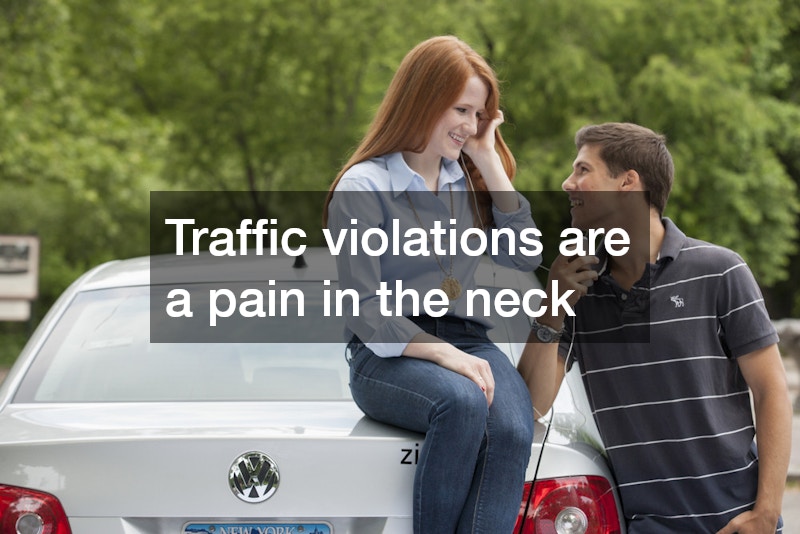

Traffic violations are a pain in the neck for any driver to deal with. Between the costs of showing up at court or paying fines and the stress of potentially losing your license or increasing your car insurance costs, a traffic violation can disrupt your peace of mind and your way of life. If you want to have the most favorable outcome after a traffic violation, you’ll need to hire a defense lawyer who is experienced defending folks who have a traffic violation. A defense lawyer can help you make sense of documents such as a court appearance letter and understand the potential consequences of not paying a federal speeding ticket.

If a judge recommends or requires any sort of treatment or training as a condition of a plea deal for a traffic violation, your attorney can help you produce the proper proof of compliance to reach the desired outcome for the case. Having an attorney will help you make your case for a favorable sentence after major traffic violations and prove you’ve satisfied the requirements for a plea deal. If you want to know what to expect from a traffic violation lawyer, we’ll delve into that below.

Have you recently been charged with a traffic violation? Maybe you’re wondering, “How do I get out of a speeding ticket?” or “How does a speeding ticket affect my license?” or you’ve recently been charged with a more serious crime, such as a DUI or DWI. If you are asking yourself these questions, you’re not alone. Plenty of people are charged with these violations every day, and there are ways to avoid the maximum penalties. Everyone’s case is different, however, so if you have specific questions regarding your charge, you should speak with a defense lawyer. A criminal defense lawyer can make the best suggestions pertaining to your individual situation, but you can use the following information as a general guide.
There are several steps to reducing or eliminating a penalty for a traffic violation, from speeding tickets to drunk driving, and although they vary by state, here are some similarities of these types of cases across the country:
1. The first step is receiving the charge. If you’ve been pulled over, it’s best not to admit guilt when the officer walks up to your car. However, if you already admitted that you were speeding or you were drinking, you will almost certainly receive a citation. While driving while intoxicated or impaired can come with its own charges and a possible arrest, a speeding ticket will most likely earn you a ticket, which you can contest or pay at a later date.
2. If you’ve received a traffic ticket, you may be tempted to pay the fine and be done with it; however, this can sometimes be a serious mistake, and it can have long-term consequences when it comes to impacting your license. For those who want to avoid points on a license or a suspended license altogether, it is essential to speak with a lawyer about your case.
3. While working with a defense lawyer, he or she will make it clear to you the consequences of your actions, whether you’re paying a fine or fighting the charge. An attorney can also help you understand all possible outcomes of the case. Depending on the level of your violation, such as a DWI, there may be a more severe sentencing based on the offense. For instance, a first-time speeding ticket or drunk driving charge will not receive the same penalty as those who have had multiple violations in the past. No matter how the case turns out, a good attorney will keep you informed of what is happening with your case.
The criminal justice system is not a perfect system, and sometimes good people end up within it due to a single mistake. If you need help navigating your charges, be sure to find a lawyer who can take your case and answer your personal questions. Have questions first? Leave a comment below. Read more.
